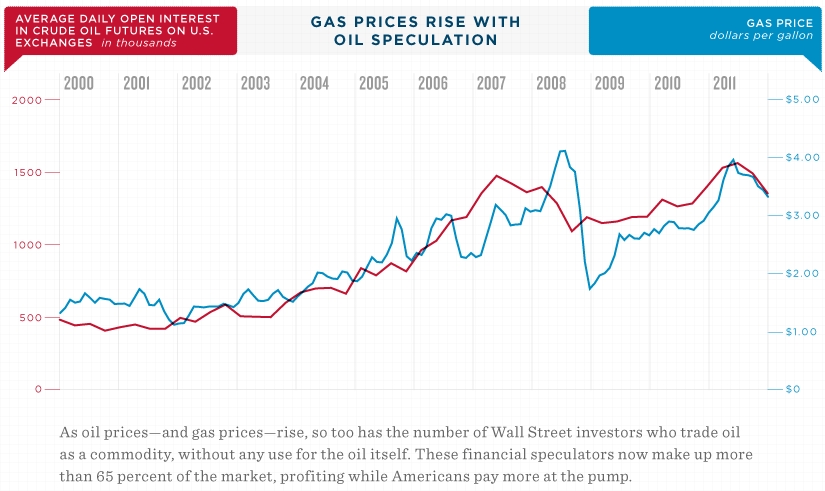Subsidizing hugely profitable companies is a good idea why again?
 President Obama is leading the charge on ending taxpayer subsidies to the massively profitable oil companies. This week, the Senate voted in a procedural vote on Senate bill 2204, the Repeal Big Oil Subsidies Act, to do just that. The vote was a lopsided 92-4 but that’s not because Senate Republicans actually want to end these subsidies. It’s because, for some reason, they think this is a winning issue for them and that it will go down in flames in the end while making the Obama administration look bad in light of rising gas prices.
President Obama is leading the charge on ending taxpayer subsidies to the massively profitable oil companies. This week, the Senate voted in a procedural vote on Senate bill 2204, the Repeal Big Oil Subsidies Act, to do just that. The vote was a lopsided 92-4 but that’s not because Senate Republicans actually want to end these subsidies. It’s because, for some reason, they think this is a winning issue for them and that it will go down in flames in the end while making the Obama administration look bad in light of rising gas prices.
The Obama administration smartly disagrees. They want to have this national conversation. Why? Because rising gas prices are tracking corporate profits quite nicely as it turns out. In other words, the only ones taking a hit on the rising cost of oil are consumers, not the oil companies.
As I have said before, the main reason for the current spike in oil prices is due to speculation. Have a look at this chart:

Click for larger version, chart courtesy of Obama for America
Democrats, led by Senator Bernie Sanders, are trying include limits on oil speculation on Wall Street. It’s doubtful that they will get it, however, because Republicans are well funded by the oil industry and there are a few oil-funded Democrats that will likely join them. That’s what happened the last time they tried this.
But the Obama administration is smart to force this public debate. They are making the Republicans admit that they side with Big Oil and not American gas consumers. They, like anyone paying attention and with an ounce of common sense, know that subsidizing hugely profitable oil companies is a waste of precious taxpayer money and that allowing wild speculation that profits only Wall Street bankers and traders at the expense of the rest of us is ridiculous. Taking away those subsidies and redirecting some of that money toward sustainable, renewable energy sources is smart energy policy. If your argument that this is “picking winners and losers” and that is wrong, I suggest to you that the current massive subsidies to Big Oil is already a policy of picking winners. Or, in this case, “a winner”.
Here’s President Obama’s statement on Senate Bill 2204:
The Administration supports Senate passage of S. 2204, which would repeal $21 billion in special tax breaks for oil and gas companies over 10 years. The Nation’s outdated tax laws currently provide the oil and gas industry billions of dollars per year in these subsidies, even though the industry is reporting outsized profits. Furthermore, heads of the major oil companies have in the past made it clear that high oil prices provide more than enough profit motive to invest in domestic exploration and production without special tax breaks. In making the tough choices necessary for deficit reduction, the Nation simply cannot afford these wasteful subsidies, and that is why the President has proposed to eliminate them in his past three budgets as well as in his framework for business tax reform. This money can be better spent promoting domestic manufacturing, encouraging the development of clean energy technologies that will reduce our dependence on oil, and cutting the deficit.In addition, S. 2204 is consistent with elements of the President’s Budget such as the reauthorization of the section 48C advanced energy manufacturing credit and the extension of the section 1603 program. Together, these important provisions support projects that will increase the Nation’s production of domestic clean energy and encourage investment in factories that will manufacture cutting-edge energy technologies here in the United States. There is no silver bullet when it comes to high gas prices, which is why the Administration has consistently advocated for an “all-of-the-above” approach when it comes to the Nation’s energy policy. By ending taxpayer subsidies to large oil companies and investing part of that money in a clean energy industry that has never been more promising, S. 2204 is consistent with that approach.
[Oil drop image credit: Chris Savage | Eclectablog]



